LUPKYNIS Is a Novel, Structurally Modified Calcineurin Inhibitor (CNI)1
LUPKYNIS Demonstrated2-4:
- No adverse impact on glucose or lipids in AURORA 1 or AURORA 2
- Magnesium and potassium levels maintained within normal range over 3 yearsa
Concomitant use of agents associated with hyperkalemia may increase the risk for hyperkalemia; monitor serum potassium levels periodically
- Predictable pharmacokinetic profile
- No drug monitoring required
- No interference with MMF metabolism
IMPORTANT NOTE:
Voclosporin nonclinical data are not meant to imply clinical benefit. No data from AURORA 1 or AURORA 2 suggest that LUPKYNIS has a direct effect on serum glucose or lipids. LUPKYNIS is not indicated as a lipid-lowering agent.
modificationb


aPatients who completed AURORA 1, and who elected to continue, remained in the same blinded treatment group. Patients in AURORA 2 had up to an additional 24 months of total exposure. Analysis of AURORA 2 patients includes data from pretreatment baseline of AURORA 1, the 1-year treatment period in AURORA 1, and up to a 2-year treatment period in AURORA 2.2
bModification to cyclosporine A molecule.
Mean Glucose Level Remained Stable5,a,c

Effect on Lipid Parameters5,a,c

- Over 3 years, for patients continuing in the study, mean magnesium levels remained within normal range5,a
cNo data from AURORA 1 or AURORA 2 suggest that LUPKYNIS has a direct effect on serum glucose or lipids. LUPKYNIS is not indicated as a lipid-lowering agent.
LUPKYNIS Targets Lupus Nephritis With a Dual Mechanism of Action4,d
Calcineurin inhibition
Podocyte Stability
Immunosuppression
LUPKYNIS reduces proteinuria levels
Podocyte stability
- Promotes podocyte stability, reducing proteinuria4
Immunosuppression
- Acts as an immunosuppressant through inhibition of T-cell activation and cytokine production4
dComplete mechanism of action is not fully established.4
MMF=mycophenolate mofetil.
References: 1. Kuglstatter A, Mueller F, Kusznir E, et al. Structural basis for the cyclophilin A binding affinity and immunosuppressive potency of E-ISA247 (voclosporin). Acta Crystallogr D Biol Crystallogr. 2011;67(pt 2):119-12. 2. Saxena A, Ginzler EM, Gibson K, et al. Safety and efficacy of long-term voclosporin treatment for lupus nephritis in the phase 3 AURORA 2 clinical trial. Arthritis Rheumatol. 2024;76(1):59-67. 3. Rovin BH, Teng YKO, Ginzler EM, et al. Efficacy and safety of voclosporin versus placebo for lupus nephritis (AURORA 1): a double-blind, randomised, multicentre, placebo-controlled, phase 3 trial. Lancet. 2021;397(10289):2070-2080. 4. LUPKYNIS®. Prescribing information. Aurinia Pharma U.S., Inc.; 2025. 5. Aurinia Pharma U.S. Inc. Data on file.